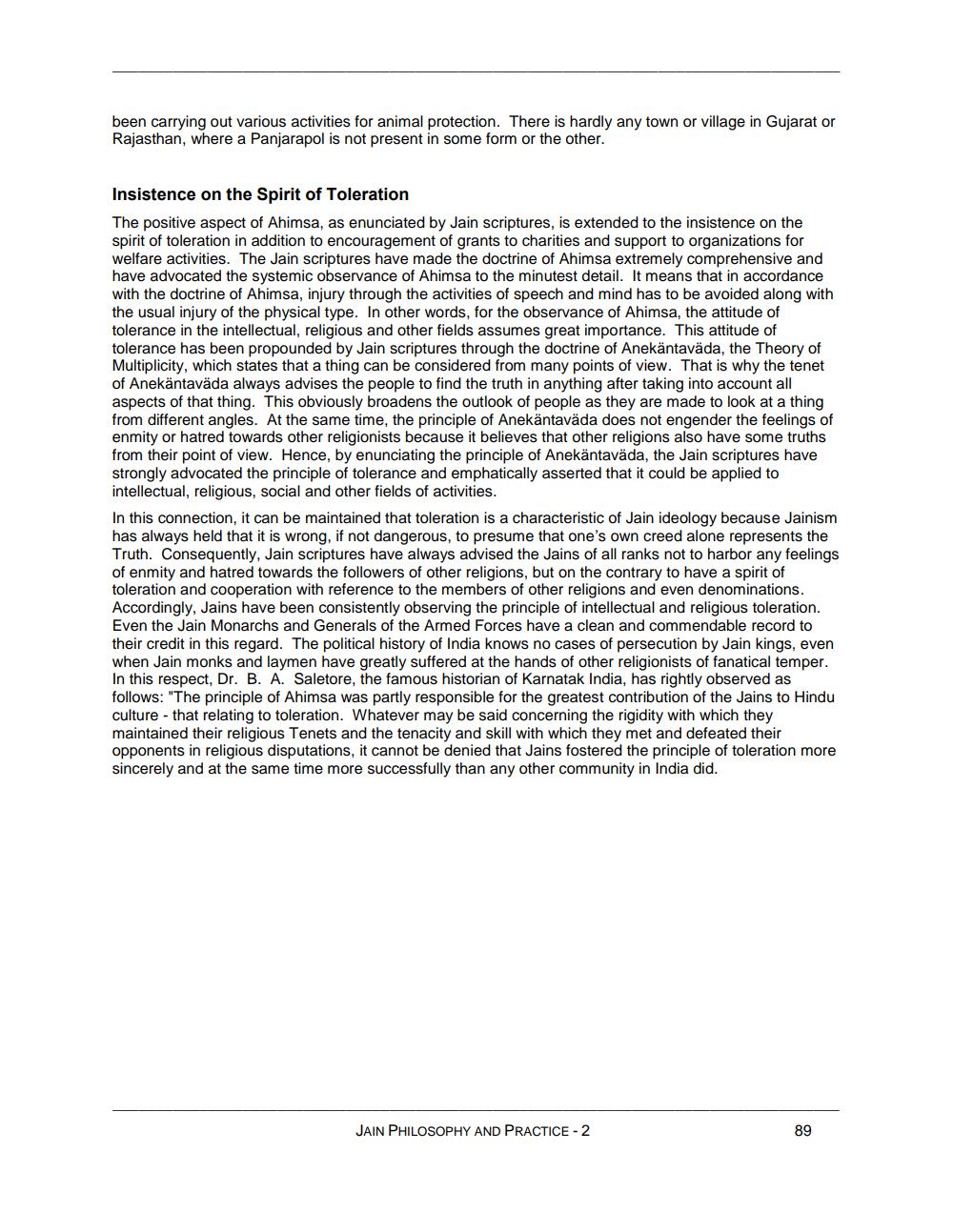________________
been carrying out various activities for animal protection. There is hardly any town or village in Gujarat or Rajasthan, where a Panjarapol is not present in some form or the other.
Insistence on the Spirit of Toleration The positive aspect of Ahimsa, as enunciated by Jain scriptures, is extended to the insistence on the spirit of toleration in addition to encouragement of grants to charities and support to organizations for welfare activities. The Jain scriptures have made the doctrine of Ahimsa extremely comprehensive and have advocated the systemic observance of Ahimsa to the minutest detail. It means that in accordance with the doctrine of Ahimsa, injury through the activities of speech and mind has to be avoided along with the usual injury of the physical type. In other words, for the observance of Ahimsa, the attitude of tolerance in the intellectual, religious and other fields assumes great importance. This attitude of tolerance has been propounded by Jain scriptures through the doctrine of Anekäntaväda, the Theory of Multiplicity, which states that a thing can be considered from many points of view. That is why the tenet of Anekäntaväda always advises the people to find the truth in anything after taking into account all aspects of that thing. This obviously broadens the outlook of people as they are made to look at a thing from different angles. At the same time, the principle of Anekäntaväda does not engender the feelings of enmity or hatred towards other religionists because it believes that other religions also have some truths from their point of view. Hence, by enunciating the principle of Anekäntaväda, the Jain scriptures have strongly advocated the principle of tolerance and emphatically asserted that it could be applied to intellectual, religious, social and other fields of activities. In this connection, it can be maintained that toleration is a characteristic of Jain ideology because Jainism has always held that it is wrong, if not dangerous, to presume that one's own creed alone represents the Truth. Consequently, Jain scriptures have always advised the Jains of all ranks not to harbor any feelings of enmity and hatred towards the followers of other religions, but on the contrary to have a spirit of toleration and cooperation with reference to the members of other religions and even denominations. Accordingly, Jains have been consistently observing the principle of intellectual and religious toleration. Even the Jain Monarchs and Generals of the Armed Forces have a clean and commendable record to their credit in this regard. The political history of India knows no cases of persecution by Jain kings, even when Jain monks and laymen have greatly suffered at the hands of other religionists of fanatical temper. In this respect, Dr. B. A. Saletore, the famous historian of Karnatak India, has rightly observed as follows: "The principle of Ahimsa was partly responsible for the greatest contribution of the Jains to Hindu culture - that relating to toleration. Whatever may be said concerning the rigidity with which they maintained their religious Tenets and the tenacity and skill with which they met and defeated their opponents in religious disputations, it cannot be denied that Jains fostered the principle of toleration more sincerely and at the same time more successfully than any other community in India did.
JAIN PHILOSOPHY AND PRACTICE - 2
89




